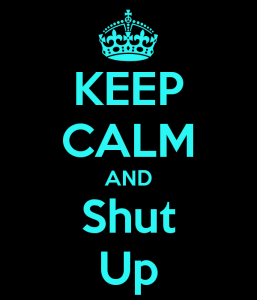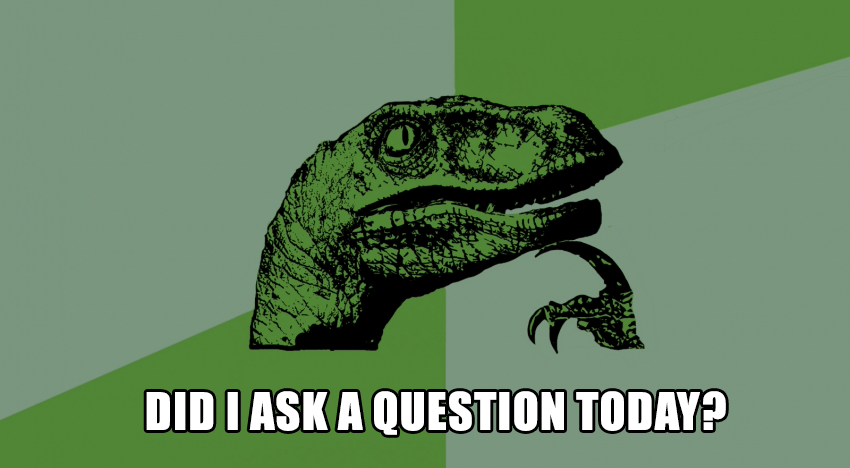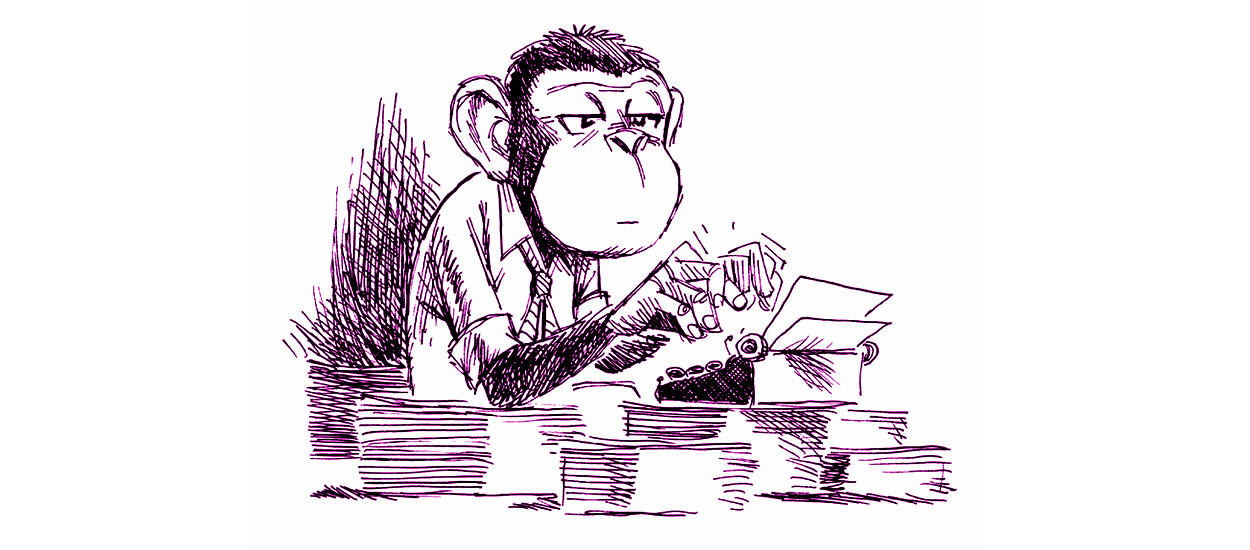In part 2 of our guide to participating in a writing group, we talk about what a writer needs to do to make the most of their time. We highly recommend reading part 1 about editing, so you have an idea as to what your editor should be doing as well.
I’m going to try not to be hyperbolic, but here’s the cold hard truth – a writer’s relationship with their editor will be one of the defining relationships in that writer’s career. A good editor can help a writer find their best version of a story, and if a writer and editor can’t work together, then nothing is going to improve. But like any relationship, this is something that everybody needs to work on for it to be successful because at its core, the writer and editor relationship is about trust. A writer needs to be able to trust that the notes they are receiving are good, and the editor needs to trust the writer to listen.
In other words, it’s a social contract. So provided that the editor follows their part of the bargain, there are a few rules that a writer needs to follow and internalize so that they can get the most out of quality editing and win the fame and fortune that we secretly all crave.
Rule #1: Shut Up
 Let’s say for a moment that a writer has finished a book and their novel is in boxes shipped all over the world. But, alas, it’s not very good. There are gaping plot holes big enough to drive a giant cliche through, the characterization is the weakest of sauces and the whole thing is so pedestrian it needs to stay on the sidewalk. Any reader who happens to pick up their book will see these glaring flaws. “But!” the writer cries,”If only they knew where I was coming from it would all make sense! I need to explain!”
Let’s say for a moment that a writer has finished a book and their novel is in boxes shipped all over the world. But, alas, it’s not very good. There are gaping plot holes big enough to drive a giant cliche through, the characterization is the weakest of sauces and the whole thing is so pedestrian it needs to stay on the sidewalk. Any reader who happens to pick up their book will see these glaring flaws. “But!” the writer cries,”If only they knew where I was coming from it would all make sense! I need to explain!”
Of course, a writer cannot go out with every copy of their fatally flawed manuscript and tell each and every reader why the book is really a magnum opus and a modern classic. That would be silly. At the end of the day the only thing that a writer has are the words on the page. Now I know that there are methods of criticism that want to know all about the author and their life and try to glean extra understanding of the text through that extra information. To put it simply, those people are wrong and if they attempt to spread their memetic contagion to aspiring writers I will straight up challenge them to a duel (dawn, on a suspension bridge to be fought with Zippo lighters).
All of this is to say that any information that the story needs, should be on that page. When a writer is getting their critical notes they need to understand that. Which means that they need to shut up. The number 1 cardinal sin that a writer can make in a writing group is to try to defend themselves and their work. Look, it’s an easy thing to want to do because your story is your special thing that you made. If you’re any good you put your heart and soul into that work and having smug critics point out that your precious prose is less than perfect is like pointing out you have an ugly baby. But, a writer must remember that the work of an editor is not to make you feel shitty, it’s to make your work even better. This means that you have to let your work stand on its own. You can’t defend it after it’s published and you can’t defend it around the editing table.
Also, arguing with an editor who has spent a lot of time thinking about your piece is a surefire way to royally piss them off.
At this stage in the process, all a writer needs to do is nod, smile, and take copious notes. Like, a lot of notes. You should receive written notes as well from your editor, but you know your story inside and out, so scribble in the margins things you want to fix and ideas on how to fix it. Just do it quietly. This rule may seem draconian, but sometimes to get good edits the writer needs to get out of their own way.
 Something to keep in mind which will help you be perceptive, is that a writer does not need to follow every suggestion. If your editor is doing their job (and read Part 1) they are going to offer up edits for the text they see and offer alternative ideas that you may not have considered. If you follow every editorial suggestion at this stage your piece would fall apart. But you’ll find that once a couple of edits are made you’ll need to rewrite things anyway to make the changes fit, so your second draft is probably going to be pretty different. Especially early on, accept the edits that help push your story in the direction you want it to go.
Something to keep in mind which will help you be perceptive, is that a writer does not need to follow every suggestion. If your editor is doing their job (and read Part 1) they are going to offer up edits for the text they see and offer alternative ideas that you may not have considered. If you follow every editorial suggestion at this stage your piece would fall apart. But you’ll find that once a couple of edits are made you’ll need to rewrite things anyway to make the changes fit, so your second draft is probably going to be pretty different. Especially early on, accept the edits that help push your story in the direction you want it to go.
Just remember, there is a rule number 2…
Rule #2: They’re Not Wrong
Once upon a time I made video games and in that time I did a lot of testing. Now there’s the testing that everybody knows. That’s the kind where people play a game over and over again to make sure everything works. A different kind of testing is called “tissue testing” because you bring in a tester, have them play the game exactly once, and see what happens. What you quickly discover are the things in the game that don’t make any sense. Maybe the critical path is confusing, or the answer to a puzzle is too obscure, or your thought that making a sequel to Gex was a good idea. Eventually a player would be able to figure it out, but if it’s not intuitive it creates an artificial barrier of entry to enjoy the game. The important thing that rookie game designers miss is that the player is not stupid. You cannot show them the correct way, because you personally don’t come in the box to tell them where to go.
 It exactly the same for writing. Any time an editor writes a note like, “i don’t understand this,” or “Where did this/they come from?” or even, “Wut?” that means that a very literate person, who was poring over your pages, missed something. The average reader would probably be screwed.
It exactly the same for writing. Any time an editor writes a note like, “i don’t understand this,” or “Where did this/they come from?” or even, “Wut?” that means that a very literate person, who was poring over your pages, missed something. The average reader would probably be screwed.
Don’t take it as some kind of personal insult, instead look at it like a chance to make your story better. Maybe there is a theme you can make more explicit. Perhaps there is a detail that was too subtle and easy to miss. Writers will sometimes create the scenes in their heads and have all of this backstory that illuminates everything, but they simply forgot to write it down in the flurry of creative expression that writing can sometimes be.
An editor will sometimes offer up suggestions on how to fix these issues, and depending on the editor they might be excellent suggestions. After all, if you are the number 1 authority on your story and world, they are a close second. You do not need to follow their suggestion, but if something doesn’t make sense then you probably need to change something. So see what they are confused by, and work out a way that corrects that issue. The next version then gets to be even stronger because the reader doesn’t have to fight to understand the text.
Rule #3: Ask Questions
Yeah, I know that the first section was called “Shut Up,” and now I’m telling you to ask questions. But that’s not as weird as it sounds. When you are receiving your edits, that’s when you need to keep the mouth closed and the mind open. For people new to a writing group there are only 2 places where talking and questions are acceptable. The first is at the beginning of a meeting to talk about the piece. Pose some questions about things you are unsure of. There are probably some sections that you think could be stronger, or lines that you’re not sure play correctly on the page. Before you get edits, feel free to ask these general questions. This isn’t about starting a dialog. You are getting constructive criticism, this is not about having a conversation – so shut up. But these questions will help the editors hit the specific points that you are worried about. This is fair.
The other time it’s a great idea to ask questions is after you receive your commentary. Feel free to ask open ended questions about specific notes or comments. This step is to get a better understanding of the critique so that your next draft can improve. For the first few times you do this, it will seem like an odd situation. That’s because once you ask the question – shut up. Again, we’re not starting a dialog because it is too easy for a dialog to turn into a defensive argument (which is explicitly not allowed). Afterwards, go ahead and ask follow up questions. Tell them you ideas for making changes and ask about them, and if the editor has any suggestions there. Mostly though, this part is about understanding the editorial notes as well as you can so try to keep questions in that vein.
Now, if you’ve been in a writing group for a long time there is another time to ask questions – when you are getting a specific edit. Yes, during that time I told you all to shut up towards the top of the article. The key here is knowing what you are getting out of your writing group. So when I ask questions during this stage, I ask things like, “What do you mean?” and “You mean this part?” In other words, I ask the questions that I would ask at the end while we are looking at the specific part of the story the group is working on. The caveat is that I only ask questions and then I listen. If I still don’t understand I ask more questions, and take more notes. We never allow it to devolve into a conversation because we want to let the work stand on its own.
Rule #4: Play Nice
If you follow Rule #1 this is hard not to do. Just remember, any good editor has spent considerable time reading, reviewing and critically thinking about your piece. These are things that they do not need to be doing for you and a good editor that cares about your work and knows what they are doing is a very rare and exceptionally valuable thing. That’s a long way of saying – don’t take them for granted. It’s a relationship after all, and for a writer it’s probably going to be the most creatively rewarding one you are ever going to have.
These rules for a writer, in a broad sense, are all about getting the writer to move out of the way so that their work can get better. They are not guidelines, so don’t cherry pick them or think that your work is somehow above them. That’s not true, every story ever written needs a good editor. Hell, even the Word of God needed an extensive edit. Keep in mind that your editors are not wrong, ask a bunch of questions, don’t get annoyed and take it personally and of course – shut up. Unless it’s in the comments. Go ahead and sound off there all you want.









